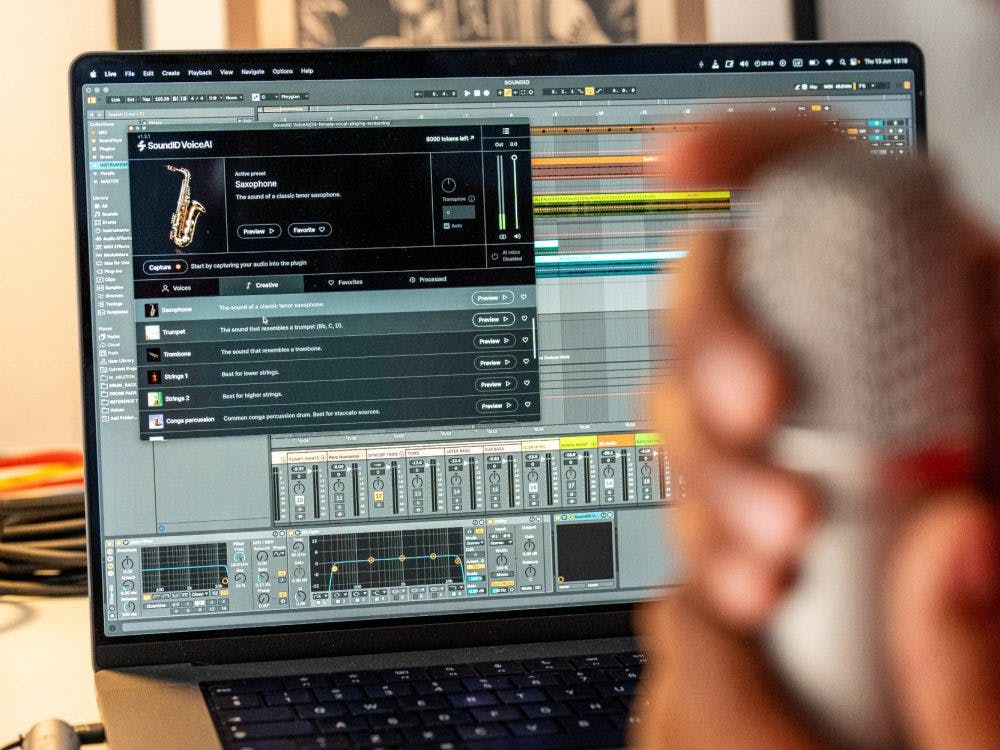The creative boundaries of using AI in songwriting are defined by the balance between technological capability and human artistry. AI excels at generating melodies, chord progressions, and basic arrangements, but struggles with emotional authenticity, personal storytelling, and cultural context. The key lies in understanding where AI assistance enhances creativity without replacing the irreplaceable human elements that make music meaningful.
Understanding AI’s role in modern songwriting
Artificial intelligence has transformed from a futuristic concept to a practical tool in music creation. AI songwriting refers to using machine learning algorithms to generate musical elements like melodies, harmonies, lyrics, and even full arrangements.
Today’s AI music technology operates by analysing vast databases of existing songs to identify patterns in melody, rhythm, and structure. These systems can then generate new musical content based on these learned patterns.
The technology ranges from simple chord progression generators to sophisticated systems that can create entire backing tracks. However, understanding what AI can and cannot do helps you set realistic expectations for your creative process.
What can AI actually do in songwriting?
Current AI capabilities in music creation are impressive but focused on specific technical aspects. AI excels at pattern recognition and can generate musical elements that follow established conventions.
AI music composition tools can create chord progressions that sound harmonically correct, generate melodies that fit within specified scales, and even write lyrics that rhyme and follow metre patterns. Some advanced systems can arrange multiple instrumental parts and suggest song structures.
Voice transformation technology, like advanced AI vocal processing tools, can help you create backing vocals from a single voice recording or transform vocal tracks into different timbres and styles. These tools work particularly well with dry, unprocessed vocals and can generate multiple vocal parts from one source.
AI also assists with rhythm generation, suggesting drum patterns and bass lines that complement your existing musical ideas. The technology proves especially useful for overcoming creative blocks or exploring musical directions you might not have considered.
Where does human creativity still matter most?
Human creativity remains irreplaceable in areas requiring emotional intelligence, personal experience, and cultural understanding. Songwriting tools cannot replicate the authentic emotional connection that comes from lived experiences.
Personal storytelling represents the heart of meaningful songwriting. Your unique perspective, memories, and emotional responses to life events cannot be artificially generated. These elements create the authenticity that resonates with listeners.
Cultural context and social commentary require human understanding of nuance, irony, and subtext. AI struggles with metaphorical language, cultural references, and the subtle ways humans communicate meaning through music.
The intangible qualities that make a song memorable—timing, phrasing, and the slight imperfections that create character—remain distinctly human contributions to the creative process.
How do you balance AI assistance with artistic authenticity?
Successful integration of AI assisted songwriting requires treating artificial intelligence as a collaborator rather than a replacement. Start by using AI to generate raw material, then apply your human judgement to select, modify, and arrange these elements.
Consider using AI for initial inspiration when you’re stuck. Generate several chord progressions or melody ideas, then choose the ones that spark your creativity. Modify these AI-generated elements to match your artistic vision.
Maintain your creative voice by ensuring that AI-generated content serves your artistic goals rather than dictating them. Use the technology to explore possibilities you might not have considered, but always filter the results through your personal aesthetic.
The most effective approach involves using AI for technical tasks whilst reserving emotional and narrative decisions for yourself. Let AI handle harmonic analysis or suggest rhythmic variations, but keep control over the song’s meaning and emotional arc.
What are the current limitations of AI in music creation?
AI creativity limits become apparent when examining the technology’s inability to understand context beyond pattern matching. AI cannot grasp why certain musical choices create emotional impact or cultural significance.
Current AI systems struggle with long-form musical narrative. Whilst they can generate individual sections, creating cohesive songs with meaningful development and emotional arcs remains challenging for artificial intelligence.
The technology also faces limitations with unconventional or experimental music. AI training on existing music means it tends to reproduce familiar patterns rather than push creative boundaries or challenge musical conventions.
Technical limitations include difficulty processing polyphonic sources, handling excessive reverberation, or working with extremely processed audio. The quality of AI output depends heavily on the input material’s characteristics.
Making informed decisions about AI in your creative process
When incorporating music production AI into your workflow, focus on maintaining creative control whilst leveraging the technology’s strengths. Use AI as a starting point for exploration rather than a final solution.
Consider your artistic goals when choosing which aspects of songwriting to enhance with AI. If authenticity and personal expression are priorities, limit AI use to technical assistance and idea generation.
Experiment with different AI tools to understand their capabilities and limitations. Each system has strengths in specific areas, whether melody generation, harmonic analysis, or vocal processing.
Remember that the most compelling music often comes from the intersection of technical skill and emotional truth. AI can help with the technical aspects, but the emotional authenticity must come from you. By understanding these creative boundaries, you can make informed decisions about when and how to incorporate AI into your songwriting process, ensuring that technology enhances rather than replaces your unique creative voice.
If you’re ready to get started, check out our VoiceAI plugin today.



